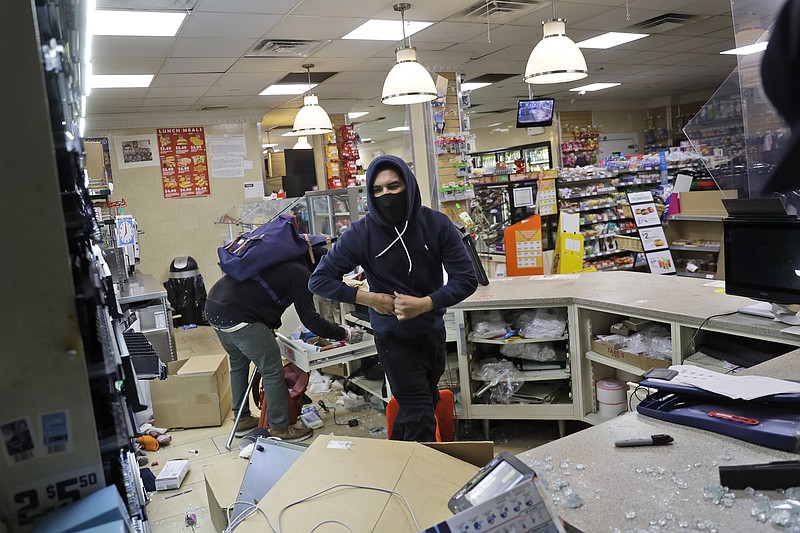ALBANY, N.Y. - History teaches us that mass unemployment, particularly of the young, often leads to unrest and violence.
The coronavirus gave us mass unemployment like nothing we've seen since the Great Depression. And now, following the killing of an unarmed black man by a police officer in Minneapolis, we have civil unrest.
I see the coronavirus lockdowns as helping to spark the violence that spreads like a, well, virus on Friday night. The protesters are genuinely and rightly angry about the killing and the long and continuous mistreatment of black Americans at the hands of the police. But we've had other outrageous police killings in recent years without the domino effect we're seeing now.
How many of the protesters have been sitting at home over the past two months, with little to do? How many have lost jobs? How many are restless, with energy to burn? How many are nervous and fearful about the future, or angry and frustrated by the present?
The pandemic has robbed us of so many of the things that make life a little more joyful and a little less tense. A smile from a stranger. An unexpected hug or high five. A night of dancing, the company of friends, cookouts in the park, an NBA playoff game ... the list could go on.
And so this country of growing divisions - poor and rich, urban and rural, red and blue - was like kindling, with rising rates of anxiety and depression, growing domestic violence and, locally, an alarming spate of drug overdoses. The killing of Floyd was the match needed for fire.
And what an outrageous and despicable thing that killing was, its easy callousness both sickening and horrific. It was an affront to all the claims we make about this country being the home of the free and equal. The knee on Floyd's neck was another blow to our naive illusions. The fury black Americans - and many other Americans - feel should not be discounted or discredited.
If there's any consolation to be found in the killing, it's that nearly everybody recognized its repugnance. "Terrible, terrible thing that happened," said President Donald Trump, and police chiefs around the country agreed.
"The incident itself was shocking," Albany Police Chief Eric Hawkins said on Friday. "It was an outrageous act."
Floyd won't have died in vain if his killing - the responsible officer was charged with murder on Friday - quickens the pace of police reform that Hawkins, to his credit, was already advancing in Albany. But the chief admitted the death was a "setback" for community relations that will affect the trust granted to officers.
A sin of looting and violence is that they draw attention from the outrageousness of Floyd's killing and toward the outrageousness of the behavior of a relatively small number of the protesters. It distracts from what's really important.
The worrying thing is that we are just at the start of what could be a long summer, and leading to fear that the violence of Friday night is only the start of what's to come. Maybe getting society moving again, as the lockdowns slowly lift, will relieve some of the tension and anger, but we don't know really what reopening the economy will mean.
How many jobs will never return? How many small businesses will fail to come back?
The pandemic has reordered our economy, perhaps for good, and as always the pain will be felt most by the poor and the working class, groups that were experiencing a multi-decade economic slide before the coronavirus. An economy that was rigged may now be even more unfair.
This isn't an argument against the lockdowns. Given the rising numbers of COVID-19 deaths we were facing, they were a responsible way to flatten the curve - and they worked.
Yet it's possible we underestimated the ramifications of mass unemployment and how it might impact the justifiable anger so many Americans were already feeling. We may not have understood how fragile things were, how easily the stitching could unravel.
It seems to be unraveling now.
The Albany (New York) Times Union
